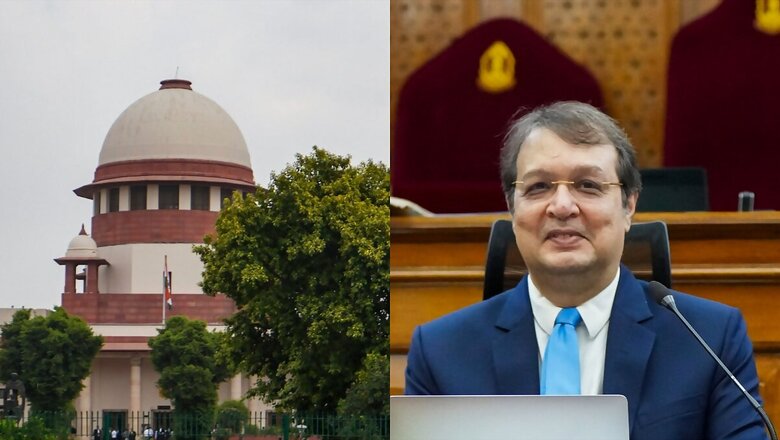
views
Justice JB Pardiwala dissented as the Supreme Court upheld the validity of Section 6A of the Citizenship Act in a 4:1 majority. The Constitution Bench of Chief Justice of India (CJI) DY Chandrachud and Justices Surya Kant, MM Sundresh, JB Pardiwala, and Manoj Misra passed the verdict on Thursday.
Section 6A granted citizenship to immigrants who entered Assam from Bangladesh before 1 January 1966. Immigrants who entered Assam between January 1, 1966 and March 24, 1971, were considered as Indian citizens barring voting privileges for 10 years.
In his dissent, Justice Pardiwala said that while Section 6A may have been valid at the time of enactment, by afflux of time, it has become “temporarily flawed.” Section 6A was enacted to give legislative recognition to the political settlement, Justice Pardiwala said.
6A is a special provision inserted into the 1955 Act in furtherance of a Memorandum of Settlement called the “Assam Accord” signed on August 15, 1985, by the then Rajiv Gandhi government with the representatives of the Assam Movement following the Indo-Pakistan War in 1971.
Justice Pardiwala said that it could have been brought to pacify the people of Assam ahead of elections. “The legislature could have simply conferred deemed citizenship to anyone who entered before 1971. But the very fact that a statutory category was created from 1966 to 1972 subject to a stricter condition (no voting rights for 10 years) would mean that conferment of citizenship was not the only objective and it was in fact to pacify the Assam people that such inclusion would not impact the then upcoming elections in the state,” he stated.
“It is illogically unique that a person wanting to avail benefits of citizenship under 6A has to wait for being detected and then move to the tribunal to prove the same. I have held how it militates against the very purpose of such a law. The open endedness of Section 6A(3) shows the legislative intent and since there is no temporal limit, no person would want to get detected as a foreigner under the same,” Justice Pardiwala said in his judgment.
He also pointed out how the section could have added to the illegal immigration issue in the state of Assam. “Section 6A has acquired unconstitutionality with the outflux of time. No temporal limit for its applicability also weighs in and all the burden on the state to detect and deport also adds it. Justice Kant has agreed that influx of illegal immigrants did not stop as on 1985 however the ultimate view taken is such immigration cannot be attributed to section 6A. However owing to its inherent problem of no temporal limit and burden on state, it has solely contributed to the influx of illegal immigrants into Assam. Section 6A does not align with articles 6 and 7 of the constitution as the crucial difference is that onus of registration under article 6 lies on the person and not the state.. but under 6A it falls on the state,” Justice Pardiwala said.
















Comments
0 comment